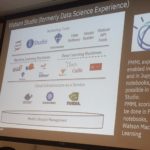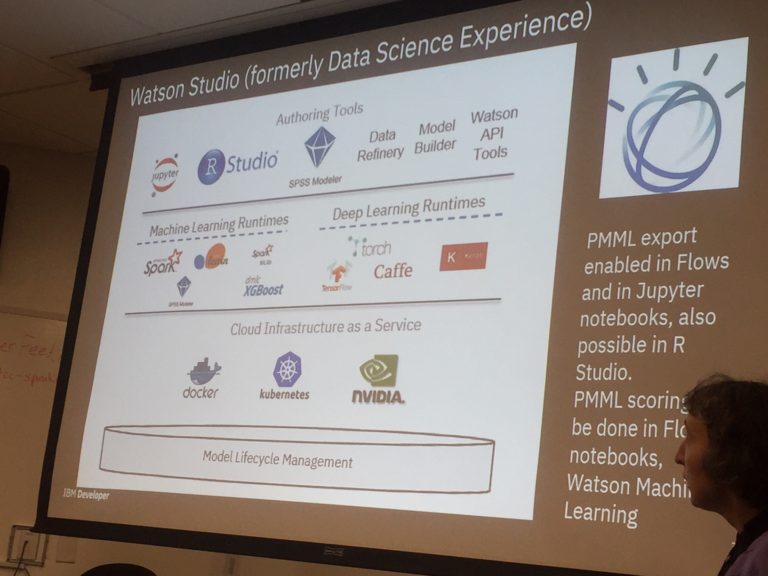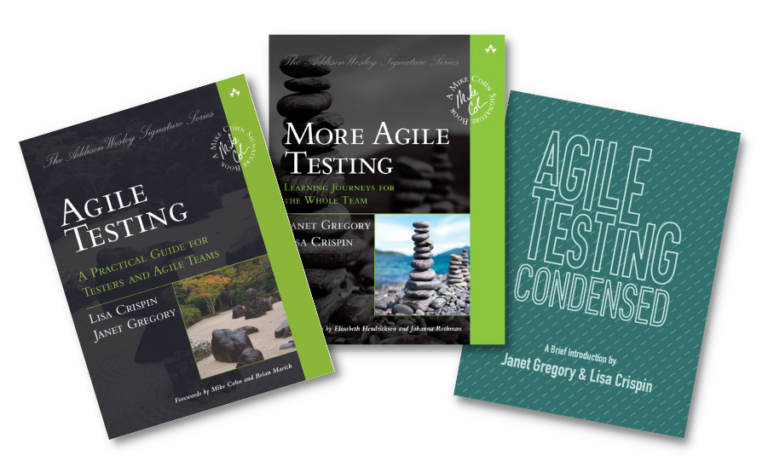I was honored to be ask to present at Vermont Code Camp 2018, the 10th annual VCC! I had a great day meeting so many software practitioners from the Burlington area and beyond. There were more than 200 people, including some kids, enjoying the lovely venue at Champlain College. I even met some fellow donkey and mule aficionados!
My own talk was Whole Team Approach to Testing in Continuous Delivery, the slides are here: VermontCodeCampTestDevOpsCompressed. I’ve learned so much about testing, DevOps and continuous delivery doing workshops and tutorials on these topics with Lisi Hocke, Abby Bangser and Ashley Hunsberger.
Moving, conferences, a new job and travel have meant I have had little time for blogging, so I haven’t had time to write up all the conferences I’ve been to lately – and I have learned so much! Amy Chess did an interesting talk on establishing data workflows, the different models that can be used to propagate data updates to many places.
AI and machine learning!
I got interested in data science, artificial intelligence and machine learning last year – which led me eventually to my new job as mabl’s testing advocate. So I was especially happy to get to a couple of sessions on those topics at Code Camp. Veronika Kolesnikova gave a nice overview of AI and machine learning. I was glad to learn about Microsoft cognitive services. Veronika noted that you don’t need to know machine learning to be able to use the APIs on offer for things like speech to text and translation. She introduced a few deep learning frameworks.

Dr. Svetlana Levitan also talked about machine learning. She mentioned that actuarial science was the first machine learning, “learning” from data, taking examples and generalizing predictions. Other examples are weather forecasting, fraud detection, and online shopping recommendations. She went into some detail on models, chartering, deep learning, neural networks, different models like linear regression and decision trees. She described stages of collecting, analyzing and cleaning data, transforming it, building a model, deploying a model, then monitoring and updating it. There are many model deployment challenges. Environmental ones include OS, file systems, databases. Languages used include Python, R, C++, Java, Scala. Teams include data scientists. And here I got a bit lost. She mentioned data mining groups and predictive model markup language. She talked about more models such as Bayesian regression, and mentioned a scoring wizard – how well can the model predict? She recounted examples such as the cloud-based Watson Studio. IBM has a curated repository of ready-to-use open source deep learning models that use Docker containers and have a REST API. I have a lot more notes – but one bottom line is that deep learning requires complex model deployment.
Old and new
Tobin Winters did a session on Value Stream Mapping. Value stream mapping is one of those things I think I don’t understand until I realize I do. It’s just something about that term that throws me. I thought Tobin’s take was a bit old school for me. But I liked the idea of improvement katas.
I figured Julie Lerman‘s talk on building serverless APIs would be over my head, but it was enlightening! She said the secret of serverless is that there IS a server. I’m not going to go into details here, ok, it was a little over my head. But I was impressed with how easy Azure makes configuring a serverless app. It reminded me a lot of Pivotal Cloud Foundry. Kind of magical! And I was impressed that Julie actually spun something up in Azure real-time, during the session. You don’t even have to write any code, just specify what you want in something like JSON.
You can check the program for more details. I’m thrilled to live in a beautiful, peaceful place where there is such an active tech scene! And Brie Hoblin, whom I met this day, has come out and driven donkeys with me, AND we are starting up a tester meetup in Burlington – first meeting is Monday!
My next post is going to be about what YOU wish machine learning could help you with, with respect to testing. I’m looking for your ideas!


